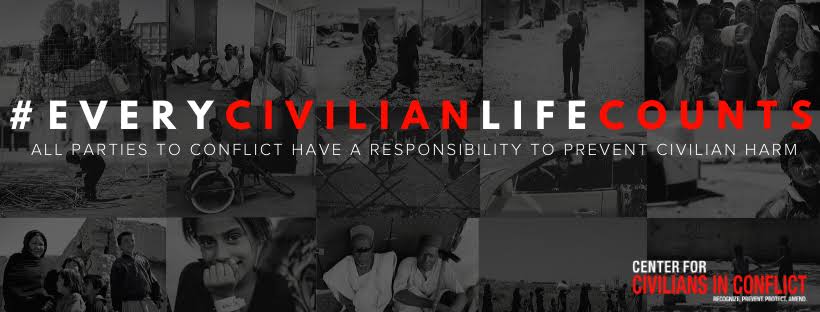By Godsgift Onyedinefu
The Centre for Civilians in Conflict (CIVIC), Stockholm International Peace Research Institute (SIPRI), and other experts in security and peacebuilding have expressed concerns over the growing threats of climate change to the peace and security of nations.
Wendy MacClinchy, director of the United Nations program at CIVIC said opportunities exists for countries to mitigate the impact of climate change by implementing adaptation strategies, especially building the capacity of communities on traditional resource management to prevent conflicts. She said this at a virtual webinar on Strengthening Community Resilience to Climate-Related Security Crises organised by the BMW Foundation Herbert Quandt.
She noted that some world leaders have named climate as the greatest single security threat that countries are already grappling with. According to her, there are up to 25 countries most affected by climate change, out of which 14 are mired in conflict.
“I suppose we are also seeing how climate change is increasing the role, the scale, and the complexity of protection challenges when it comes to individuals and communities made vulnerable by climate and conflict.
“In some of the places where CIVIC works, we’ have seen this first-hand, including how some of these drastic changes around climate-related disruptions can fuel conflict and trigger some of these compounding risks, especially to the most vulnerable; women, children, displaced, marginalized, creating these layers of vulnerabilities which can be quite difficult to navigate.
To help vulnerable communities build resilience, MacClinchy urged nations to involve security forces and military in climate change response plans, especially as it relates to the protection of natural resources in conflict zones.
“There is a lot more we can do in building relationships with security forces in these conflict areas, and incorporating them for longer-term planning to increase resilience. We should be creative about how we engage with state institutions which aren’t normally involved in climate adaptation like civil defence forces who have a long track record and expertise and capacity on engaging in crises, “she explained.
She also said community leaders and community protection groups should be supported, and women should be given leadership roles in the management of scarce resources. “In Yemen, we saw that women in leadership roles related to water were much more successful. So, we can advocate for this role for women at the forefront of negotiations and management of water resources. We can support local leaders and groups and local mediation and negotiation efforts; provide education and resources on those risks to affected communities and local authorities,” while stressing the need to support the social cohesion and community resilience aspects related to resource scarcity and higher demands.”
She further urged communities to build data protection mechanisms to provide a means for coordinating and acting on climate adaptation, which can be built into local security strategies.
The director said early warning and rapid response mechanisms, community-based protection groups, can further be strengthened and used for early warning of the threat of attacks.
At the international level, MacClinchy urged nations to advocate for the integration of the protection of civilians as a global priority within the climate and conflict mitigation and adaptation strategies.
Also speaking, Hans Olav Ibrekk, Policy Director, Energy, and Climate Change, Norwegian Ministry of Foreign Affairs reiterated that no national community can find lasting security without addressing the climate crisis. He, however, expressed concern that “Our capacities to assess and address climate-related security risks are not keeping pace with the speed with which the risk landscape is changing.”
“In already fragile contexts, especially where the coping capacities tend to be low, climate changes can overwhelm states and societies and increase the risk of violent instability, and conflict,” he said.
He stressed that climate change, conflict displacement and hunger reinforce each other, and increase the existing risks of economic prosperity, political stability, military readiness, and food, water, and energy security.
“We need climate-related factors to be included systematically in political and risk analysis. We need to make our climate action complex, sensitive, and our peacebuilding efforts climate-sensitive,” he said.
In building climate resilient communities, infrastructure, and livelihoods, he said countries must ensure a steep increase in financing while pledging the readiness of Norway to increase funding on climate-related issues.
Katongo Seyuba is a Research Assistant with the SIPRI Climate Change and Risk Programme sharing lessons and experiences from communities that have successfully built resilience.
According to him, research showed that a community in Zimbabwe adopted a practice of collective food work to pull labour and share resources in a way to enhance food security and create a social safety net to protect against floods and drought.
On the conflict side, he stated that the social relationship between communities is also important in preventing and resolving natural resource conflicts in terms of increasing scarcity.
“This is because the social relationship can facilitate inter-community customs and rules that govern resource sharing as well as facilitate community dialogue to reduce the likelihood of violence and as well build peace,” he said.
Speaking further, the research assistant disclosed that in Northern Kenya, pastoralists and farmers rely on their social networks to prevent conflicts over shared territory and agricultural land. “We also see this in the coastal highland of Yemen, where social relationships play a significant role in the implementation of arrangements and rules of managing scarce water resources,” he said.
“In Ethiopia, social relations facilitate the sharing arrangement between agro-pastoralists and pastoralists for the use of pasture during crops. So, this social relationships and trust between communities is significant in improving adaptation and also reducing conflict risks,” he explained.

